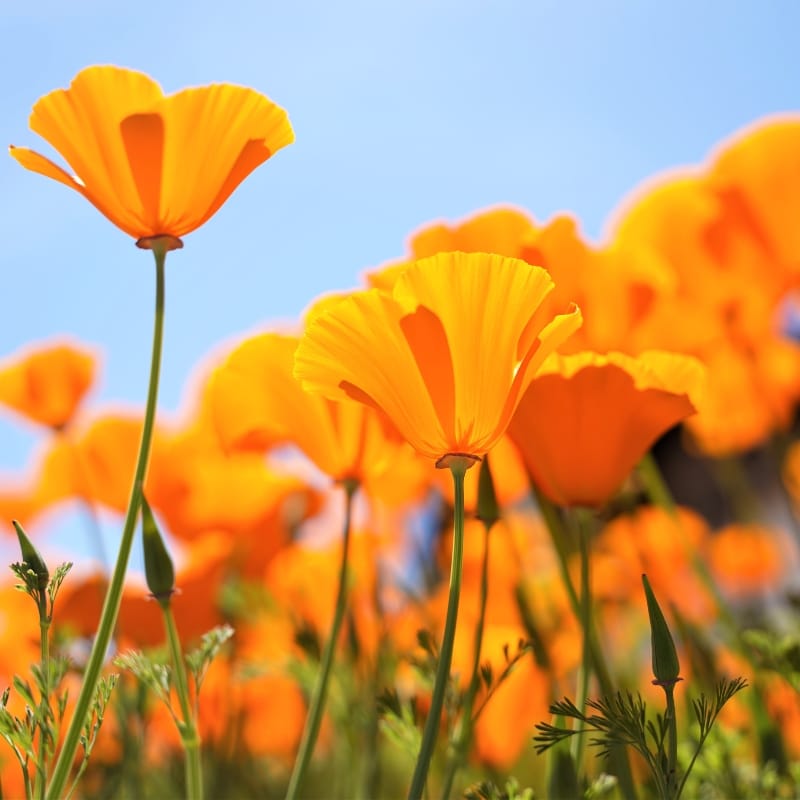If you have been sneezing more than usual this spring in Roseville or Folsom, you are not imagining things. Allergy season in the Sacramento region is intensifying in 2025, and the numbers support this trend. Sacramento now ranks as the 23rd-worst U.S. city for seasonal allergies, a dramatic rise from its previous ranking of 94. That change reflects more than just statistics. It illustrates the significant changes in the local environment and how these shifts are impacting people’s daily lives.
Why the 2025 Allergy Season Hits Harder
Sacramento’s higher ranking stems from what the AAFA calls a “grass and weed pollen explosion,” worsened by unusually wet weather in 2024. That moisture fueled rapid plant growth, which in turn ramped up pollen production. In particular, grass pollen levels have climbed significantly, with weed pollen not far behind.
These allergens are not evenly spread throughout the year. Tree pollen peaks first, usually between February and April. Grass pollen becomes dominant from May to July. Then weed pollen, especially ragweed, takes over through the late summer and into fall.
Climate shifts play a big role in extending this timeline. Sacramento, like many cities in the Western U.S., is experiencing more freeze-free days each year, 20 more on average compared to 1970.
The Local Impact in Roseville and Folsom
Though the AAFA’s rankings focus on metropolitan areas, their data includes surrounding communities like Roseville and Folsom. Residents here are breathing the same pollen-heavy air and facing similar challenges. From backyard gardening to school pickup lines, daily routines now include extra tissues, allergy medication, and plenty of frustration.
Allergy symptoms in this region have become more than a seasonal nuisance. Many patients describe them as relentless, with congestion, sinus pressure, and fatigue that stretches on for months. For those with underlying conditions such as asthma, the risks rise even higher.
Our local environment contributes to this burden. Fast-growing grasses, open green spaces, and warm, dry summers are part of what makes this region beautiful. However, they also create ideal conditions for allergenic plants to thrive and spread.
Understanding the Health Risks
Roughly one in three Americans experiences seasonal allergies, according to the CDC. These allergies are uncomfortable and can be serious. For instance, allergic asthma is triggered by exposure to pollen and other allergens. It can cause shortness of breath, wheezing, and chest tightness. In some cases, allergic asthma leads to emergency room visits or long-term complications.
In 2022, more than 3,000 deaths in the U.S. were linked to asthma. While many of these cases had multiple contributing factors, seasonal triggers like grass and tree pollen remain a top concern, especially in cities now ranked in the AAFA’s top 25.
Children are particularly vulnerable. Nearly one in five American children has seasonal allergies, and around 6.5 percent live with asthma. Prolonged pollen exposure can interfere with sleep, learning, and physical activity, making it harder for them to thrive.
What Makes This Year Different
Several changes have converged to make the 2025 allergy season more difficult. First, 2024’s wet winter led to accelerated plant growth across California. Sacramento’s landscape responded quickly, producing higher volumes of both grass and weed pollen than seen in previous years.
Second, warmer temperatures and later frosts have extended the growing season. That means the traditional boundaries between tree, grass, and weed pollen seasons now blur together. In some areas, pollen levels remain high almost year-round.
Finally, air pollution interacts with pollen to worsen allergic reactions. As urban areas like Roseville and Folsom heat up due to more paved surfaces and fewer trees, air quality declines. This urban heat island effect intensifies respiratory symptoms for many allergy sufferers.
How to Manage Allergies With Preventive Care
Although there is no cure for seasonal allergies, proactive care can make a significant difference. Over-the-counter antihistamines and corticosteroid nasal sprays help control common symptoms, such as sneezing, nasal congestion, and itchy eyes. However, these medications are most effective when started early, ideally before pollen levels peak.
For patients who experience more persistent or severe symptoms, immunotherapy may offer relief. This treatment desensitizes the immune system over time. It uses small doses of allergens administered through shots or oral tablets.
We often see patients who try multiple medications without long-term improvement. In these cases, allergy testing and a tailored treatment plan can help identify specific triggers and uncover overlooked patterns. Even something as routine as switching the air filter in your home or rinsing your nose with saline can ease daily discomfort.
The Role of Lifestyle and Local Conditions
Preventive strategies go beyond medication. Simple changes at home and in your routine can minimize exposure to allergens. For example:
- Close windows and doors during peak pollen hours (usually early morning)
- Use high-efficiency (HEPA) filters in air conditioning units
- Shower and change clothes after spending time outdoors
- Limit lawn mowing or wear a mask when doing yard work
- Track daily pollen counts using trusted sources
We encourage our patients in Roseville and Folsom to approach allergy season with a clear plan. That plan might include:
- Scheduling checkups before symptoms spike
- Building a daily routine for allergy medications
- Trying new therapies under our guidance
Our goal is to reduce discomfort so you can enjoy more of what matters: family time, outdoor activities, and restful nights.
Breathe Easier in a Tougher Season
Allergy season in Sacramento, Roseville, and Folsom is more intense than it has been in years. Pollen levels have spiked. Seasons have stretched. For many people, the result has been months of disrupted sleep, foggy mornings, and irritated sinuses.
These challenges are real, but they are manageable. With the right care, you can control your symptoms and enjoy the seasons without constant discomfort.
Zeam Health & Wellness is here to help you take those steps with primary care and preventative care. Our team supports patients through personalized, thoughtful care designed to meet the demands of a changing environment. If you are feeling the weight of this year’s allergy season, schedule a visit with us. Let us help you move through spring and summer with fewer symptoms and more peace of mind.




